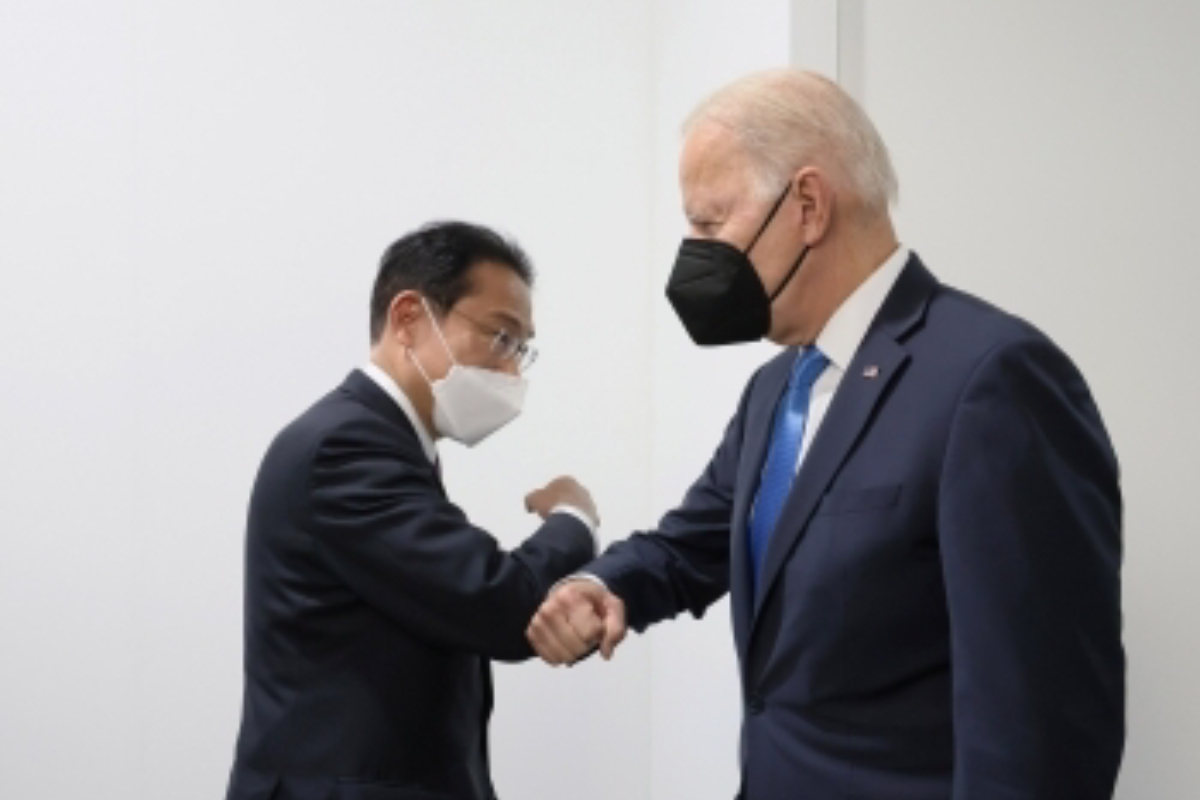Japan’s Prime Minister Fumio Kishida will set off for Washington DC on January 12 to hold a bilateral meeting with President Joe Biden on security, economy and other concerning issues in the White House.
The US will be PM Kishida’s last stop in his five-nation tour that will see the Liberal Democratic Party leader visiting France, Italy, the United Kingdom and Canada along with the US, The New Indian has learned.
In their bilateral talks on January 13, PM Kishida and President Biden are expected to discuss North Korea’s “unlawful weapons of mass destruction and ballistic missile programs”, Russia’s conflict with Ukraine and the crisis in the Taiwan Strait, the White House’s Press Secretary Jean Pierre said.
“President Biden will reiterate his full support for Japan’s recently released National Security Strategy, its presidency of the G7 and its term as a non-permanent member of the United Nations Security Council,” Jean Pierre further said.
Worried over China’s muscle flexing in the Asia Pacific region and North Korea’s renegade ways, Japan is spreading its defensive strings with an increasing budget for acquiring defence hardware in the vision of its newly announced National Security Strategy.
Commenting on the changes in the policies of PM Kishida and Japan’s relations with the Kremlin, Dr Swasti Rao, an adjunct faculty of Tokai University and PhD from Tsukuba University in Japan feels that the Japanese PM is leaving a legacy of his own.
In a conversation with The New Indian, Dr Rao said, “When Fumio Kishida became Japan’s PM, it was expected that he would carry forward the legacy of his predecessor and mentor, Sinzo Abe. That holds true as far as assessing realistic threats to Japan is concerned, which is reflected largely in how Japan has come up with a revamped New Security Strategy with a far more pronounced military posture (a clear shift from Article 9 limitations, just as Abe had envisioned).”
“But Kishida’s real departure from the Abe era has been on Russia. While former Japanese premier Abe balanced relations with Russia, Kishida has been re-writing his mentor Abe’s Russia playbook in his own way,” Dr Rao opined.
“Japan, under Kishida, is firmly against the Russian invasion of Ukraine and has joined the western sanction regime. Kishida’s decision to levy sanctions against Russian President Putin has been considered a landmark political decision in the history of Japanese foreign policy towards Russia,” she added.
Talking about the meeting between PM Kishida and President Biden, Dr Rao said, “The visit reflects a strengthening and an evolving bond between two traditional allies in complex geopolitical times that have forced most major players to upend their strategic calculus.”
“Japan and the US share a security treaty that has stood the test of time and is the cornerstone of Japan’s security and foreign policy. Japan is also a member of the Quad, which is loosely built as far as formal structure is concerned but is an objective laden economic-security alliance against China and upholds a rules-based order in the Indo-Pacific,” she said.
Dr Rao felt that the upcoming G-7 summit in Hiroshima might see discussions on bringing more economic sanctions on Russia. “Now that Japan will be hosting the upcoming G-7 summit 2023 in Hiroshima, the current visit will provide a window to the close allies to set the agenda for various issues across the year. A significant part of the agenda will be to brainstorm more economic sanctions on Russia and tighten the loopholes of the existing sanction regime as the war stretches on and the impact on the global economy,” she added.
Dr Rao also felt that North Korea’s ballistic missile program and China’s growing assertiveness in the East China sea could also form part of key discussions.
“Bilaterally, one of the factors that will be discussed with due seriousness is North Korea’s ballistic missile program, which poses a direct threat to Japan. Cross-strait tensions will also be discussed alongside as they pose an existential threat to the security environment in the East China Sea,” Dr Rao said.












